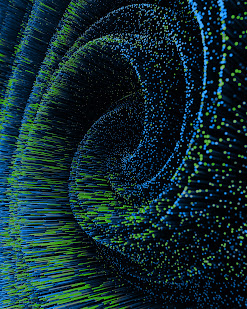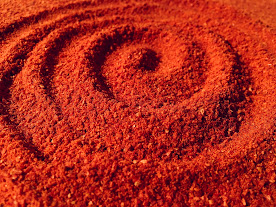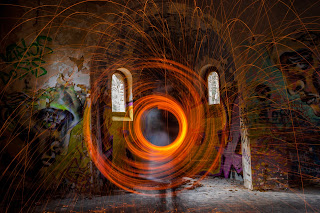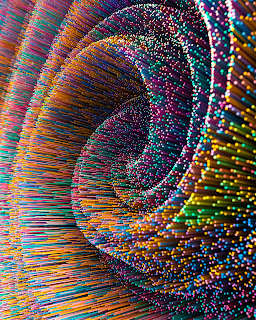 |
| photo by Mitul Grover on Unsplash |
 |
| photo by SARAH GRANGER on Unsplash |
1st Level: BEIGE - Instinctive Self
associated age in human development: 0-18 months
This is an instinct-based survival existence that started 100,000 years ago based on finding water, food, warmth, and shelter.
In our modern world there is a lot of suffering, people can find themselves on this level because of poverty, displacement, or other extreme situations. It can be the level someone is on because of a life full of personal/collective crisis (such as living through a war or pandemic). This can be an existence of just trying to make it through the day - trying to make it to the next hit, or to the next meal. Even if we consider ourselves far beyond this developmental stage, if our lives become threatened, we can find ourselves in this method of existing. All of us function on this level in situations, even if temporarily, like when we are told to shelter in place or when we narrowly miss a car accident. None of us are above even the most basic level of human consciousness or functioning given the most stressful of circumstances, and each level takes the previous one with it as we spiral up.
On this level there seemed to be a only vague sense of self as differentiated from others. This kind of consciousness can go one of two ways - at its worst, there is a focus on one's own survival above others or even at the expense of everyone else, and at its best, it is a constant focus on helping your tribe as a whole to survive. This spirals us up to the purple level....
 |
| photo by Ashleigh Yoong on Unsplash |
This is a way of life based on tribal order - starting 50,000 years ago
The purple level is a perspective of seeing the world as a magical or mysterious place, while trying to stay safe in the midst of it. With this comes petitioning to gods/powers, often with obedience and ritual. This level comes with a perception of personal disempowerment and can require keeping the spirits or forces of the universe appeased to avoid problems, or perceived punishment.
In taking care of family, tribe, or village, relationships are often in a role-based structure. There is allegiance to elders, clan, and customs. People on the purple level are often self-sacrificial to toward their own group for the greater good, and yet this often comes with the duality of being xenophobic - antagonistic toward those from the outside. At its worst, the purple level can lead to deep narcissism or ethnocentrism.
Examples of where you see some degree of the tribal aspect of the purple level in modern culture: intense devotion to a specific sports team, deep school ties, or a belief that your own ethnic group, political party or way of thinking is better than the others.
While someone very locked into the rationalistic 'higher' level might look down on this level, they had to pass through this level to get there. As one continues up the spiral even past rationalism and materialism, they may actually see this level with much less judgement as they recognize there is a world beyond the material one.
 |
| photo by Sina Katirachi on Unsplash |
3rd level: RED
associated age in human development: 3-6 years
This level has its starting place in Early Mythic times 10,000 years ago and is associated with feudal and exploitive empires. It includes an intrinsic hierarchy.
Some associated traits of the red level in a healthy form: strength, vitality, setting strong boundaries, empowerment, and setting goals.
Most of what seems to happen on this level however doesn't end up being for the greater good. At its worst, this level is an egocentric one focused on domination, being the winner, and attaining/keeping power. This is rooted in scarcity mentality - the perception that there are not enough resources to go around. Egocentric power for self-gratification, focused on touting personal achievements, critical, lack of guilt, fear-based leadership, being destructive, impulsive, lack of discipline, lack of empathy for others (narcissism), seeing the world only through the lens of your own ethnic or socioeconomic status, and domination that crushes and exploits can be included on the red level. The "Greed is Good" era of the 1980s exemplified this way of thinking. Sometimes this is seen in modern politics. Collectively, this can impede the building of stable nations, and an understanding of this level answers the question of why people start wars.
Examples of people who function out of a red paradigm: gang leaders, mafia bosses, dictators
 |
| photo by Agnieszka Cymbalak on Unsplash |
Starting 5,000 years ago and connected with the Later Mythic Era, authoritarian states
On this level, life has meaning, direction, and purpose with predetermined outcomes. There is structure, purpose, order. The goal is ultimate peace.
People are expected to have impulse control and even be self-sacrificial. The expectation is to follow the given rules, and this is the first level where the concept of having a conscience or experiencing guilt emerge. People are not supposed to conform, and are given roles/scripts for their lives. The law/text/code has been handed down - people must follow it and divine plan assigns people to their places. Like the red level, this can also be seen in modern politics.
When blue is at its worst, it can include archetypal role identification, fundamentalism, dogma without grace, hierarchy without love, and patriarchy without space for females to take on leadership roles. There is a hard time taking in outside perspectives, which can cause a belief that others or outsiders are 'wrong/bad', and this is a shadow of purple-level thinking. At its worst, atrocities can happen as the result of too much blue-level thinking, such as the Inquisition.
When blue is healthy and at its best, this level includes bravery, courage, sacrifice, great love, community, having a strong moral compass, delayed gratification for the greater good.
5th level: ORANGE
associated age in human development: 9-14 years
 |
| photo by Miguel Orós |
This level is prosperity-based with a focus on materialistic pleasure - acting in your own self-interest by 'playing the game to win'.
Orange is usually independent, anti-hierarchal and competitive. Truth comes from discovery, reason, logic, data, and statistics. There is a focus on science and tech.
Orange at its worst includes a scarcity worldview, which can cause identity crisis, consumerism, ecological crisis, workaholism, goal-fixation, various addictions, and over-attachment to successful methods.
Many say this is the level we are currently in collectively, though hopefully for not too much longer. People feel especially tired of the achievist orange level when they go on social media and see friends posting pictures of showing off a materially successful life: nice cars in front of their nice houses, flaunting their 'power couple' status, or showing off the expensive vacations they have taken.
The realization when you come to the end of your time at this level is that material pleasure doesn't buy happiness, and you don't have to try be better than anyone else, because the reality is that you are not.
While being stuck in the orange stage could be like being a lifelong adolescent, somewhere within green or yellows stages, human consciousness evolves from a scarcity worldview (a perceived fear that there are not enough resources to go around) to an abundance worldview (the realization there is enough and that we can be generous with others).
 |
| photo by Danist Soh |
Communitarian/Egalitarian - starting 150 years ago
This level is about seeking peace within the inner self and working with others to foster genuinely creative and caring community as decisions are reached through reconciliation and consensus. The human spirit must be freed from greed, dogma and divisiveness as feelings and caring supersedes cold rationality (even as rationality is valued) and Earth's resources are no longer hoarded by a limited few. Some of this may be derived from the Transcendentalists like Thoreau. I can picture Millennials, as they gain more life experience and head into elderhood, naturally mentoring younger generations from this level.
On the green level, spirituality becomes valued once again on a larger, collective scale. There is a deep, residing harmony, and human development is valued while gender equality is expected.
A person can work toward spiraling up to this stage by bringing themselves into open discussions with people who believe differently and do volunteer work to help the less fortunate in their community.
The first tier ends at green (Personal, Subsistence)
The Second tier begins at yellow (Transpersonal Being)
While no specific age in human development is associated with the following levels, when a person makes a second-half-of-life transition as discussed by Richard Rohr in the two halves of life, I believe this would put them in on a level of consciousness to go up to the next levels on the second tier.
 |
| photo by Cédric Stoeklin on Unsplash |
This level has a focus on living fully and responsibly, which naturally leads to a harmonious synthesis with your fellow humans by integrating diversity with discernment to create an interdependent natural flow. Life more fully becomes valued over materialism. There is a flexibility, spontaneity, and functionality even as one accepts that chaos and change are natural. Boomers, as they were mentored by the Silent Generation in the 1960s, laid a foundation for the yellow level in their civil rights work.
While the lower orange level is anti-hierarchy, on the yellow level one accepts that life is a natural hierarchy of natural hierarchies, systems, and forms. When hierarchy includes both patriarchy and matriarchy as equals, and when it approaches everything and everyone from a place of genuine love and acceptance, there is a harmoniousness to the way people relate to each other. True hierarchal leadership throughout human history has rarely come from a place of self-sacrifice, which is why so much disdain for it has developed, particularly over the last century. Though it could be more commonplace on the yellow level if love is at the center and genuine teaching, care, and mentoring happens as it is supposed to. Self-sacrifice/self-denial is seen on the purple level for one's own tribe, though on this higher yellow level, it would be the opposite of ethnocentric - it goes beyond your tribe - it would be world-centric. This kind of consciousness was taught by some of the greatest spiritual teachers, even while they were functioning on even higher levels, and yellow could be the level of the 'golden rule'.
 |
| photo by Pawel Czerwinski on Unsplash |
This level goes deeper into being world-centric. The focus is peace in an incomprehensible world. Multi-dimensional, trans-rational perceptions take place individually and collectively. There is a consciousness of minimalistic living.
This has its roots starting 30 years ago in an official sense (though I see pieces of ancient Celtic wisdom, Native American tradition, Christ-consciousness, and possibly Hinduism woven through it).
On the turquoise level - the highest level we know any details about so far, there is the opportunity to experience the wholeness of existence through mind and spirit by seeing the world as a single, dynamic organism, possibly even with its own collective mind. Global networking is seen as routine on this level. Self is both a distinct and blended part of a whole, which could be a shadow of the very first (beige) level here. Beyond seeing yourself as connected to others (as many tribes and villages have throughout history) there is even a seeing of oneself as connected to ecology (as seen in both Celtic and Native American traditions). This creates a bridge to holistic intuitive thinking and cooperative action with others.
 |
| photo by Tyler Nix on Unsplash |
With spiral dynamics, we cannot judge someone else if they are on a 'lower' level than we are - we have been on that level ourselves to get where we are. Whatever level someone else is on, if it is lower than ours, it is also a part of ours, as all of this is integrated. First we learn the concept of self so that we can eventually know the concept of other, and first we learn to love our own tribe so that, ideally, we learn how to embrace people from tribes that are not our own.
 |
| photo by Jeremy Thomas on Unsplash |
 |
| photo by Mitul Grover on Unsplash |
The integrative levels of Spiral Dynamics help us better empathize with others even as it helps us recognize our own blind spots. If the collective loss, grief, stress, and agony of this pandemic has taught me anything, it is that we all need each other to get through this. All the generations need each others' help, perspective, and insight. If we are going to solve the world's problems, every culture and generation will be a part of the solution. The higher levels of human consciousness let go of ethnocentrism and narrow thinking and invite everyone to the table. Humanity is spiraling up quickly, maybe even exponentially, as the centuries and the decades go by.
The higher we go together, the more space there is for hope, for healing, for light, for love.
Let's keep spiraling up.
(c) 2022 Chloe Koffas - all rights reserved, all images used under the Unsplash free license in 3/2022
_____________________
Sources/articles/podcasts/recommended further research:
The set of colors above are used by some researchers, others use a different set of colors to differentiate between levels.
There are several variations of Spiral Dynamics. All of the above is taking the research, knowledge and wisdom of others, filtering it through my own perspective and just adding a few thoughts. While this piece is incomplete in some ways, it also adds in a few new ideas to ideally help the conversation on this topic to evolve. I'm not an expert, though these are some of the experts and researchers that have contributed to this model: Don Edward Beck, Christopher Cowen, Clare Graves, Richard Dawkins, Ken Wilbur, Jean Gebser, Stanilav Grof, Fred Kofman, George Leonard, Michael Murphy, Jenny Wade, Roger Walsh, Mihaly Csikszentmihalyi, and Michael E. Zimmerman among others. See more on Spiral Dynamics on Wikipedia.
Mayank Chaturvedi posts a list of many of the models of human development and explains Spiral Dynamics:
 |
| photo by Charles Etoroma on Unsplash |
Recommended podcasts:
Rob Bell and his son Trace Bell have a four part podcast series on Spiral Dynamics on 'The Robcast' from 2020 called 'Me, We, Everybody'
robbell.com/podcast
Richard Rohr discusses scarcity vs. abundance perspectives as well as the two halves of life - this can fill in some gaps and answer some of the questions that go with the way the way human consciousness levels up:
cac.org/scarcity-or-abundance-2018-07-05
cac.org/two-halves-life-2015-10-12
No comments:
Post a Comment